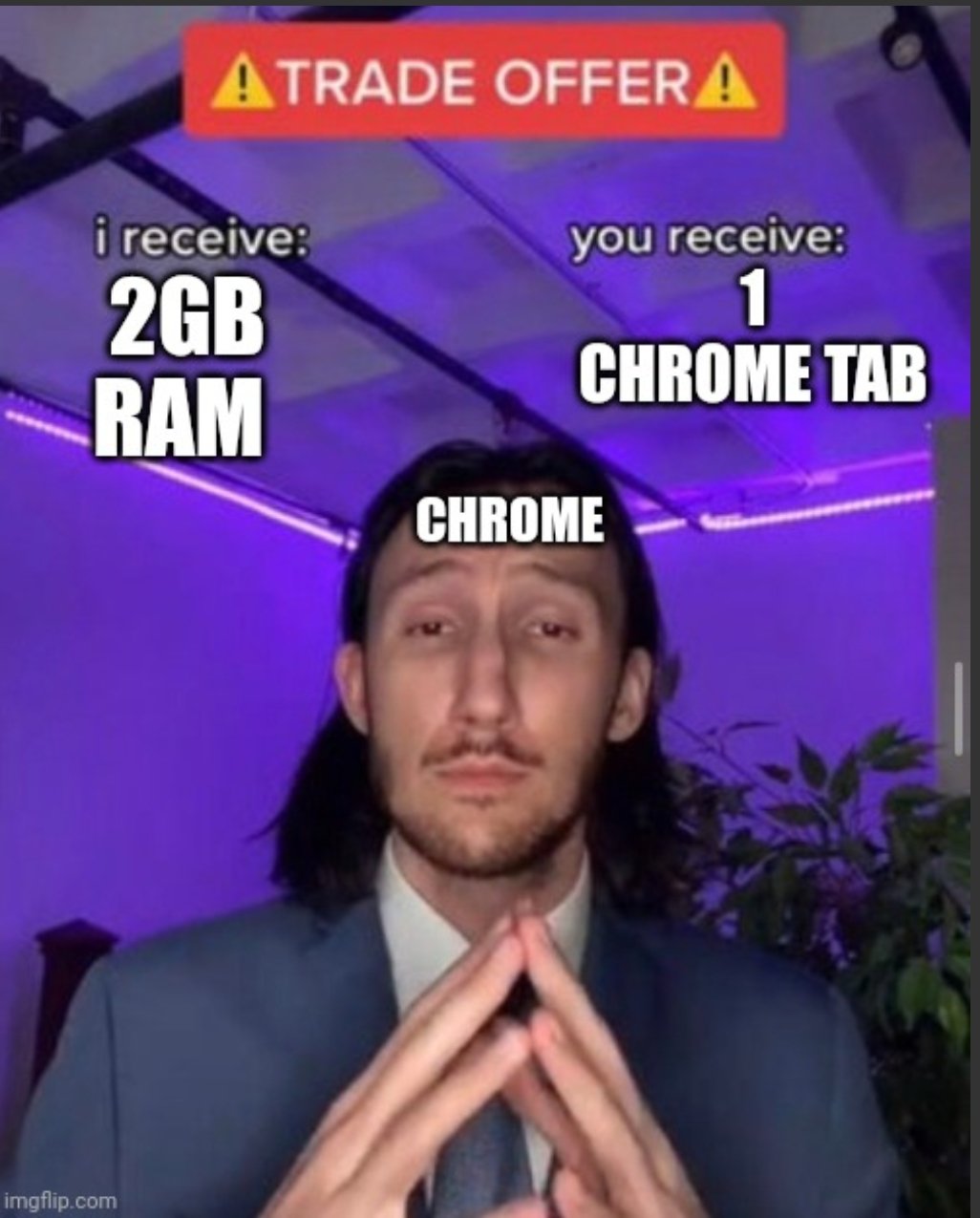this post was submitted on 14 Jun 2024
541 points (96.1% liked)
Memes
45746 readers
1540 users here now
Rules:
- Be civil and nice.
- Try not to excessively repost, as a rule of thumb, wait at least 2 months to do it if you have to.
founded 5 years ago
MODERATORS
you are viewing a single comment's thread
view the rest of the comments
view the rest of the comments

For now. If Firefox became a Chromium fork, ideally it would stay that way. But if Google did make things too hard in the way you describe, then I would suggest Firefox, Brave, Vivaldi, etc. should share a sort of medium-hard fork of Chromium. Keep their own track with features they need, but keep it close enough that the basic rendering engine can still be merged in from work Google does.
That's an ideological position. I don't agree that there's any inherent value in the underlying browser engine being diverse. If anything, I think it's useful for it to be consistent and predictable.
As I write this, I'm talking myself into a slightly different position. Maybe they don't need to fork Chromium, but it would be valuable to dump Gecko in favour of Blink. I don't actually know what Chromium gets you besides Blink (and V8, which I lump together with Blink because for the same reasons, I think it would make sense to unify around). Stick with Blink & V8 to let Google to the work on the rendering side (while still being able to contribute back yourself where necessary), while maintaining your own browser and extension ecosystem. So web developers get a single platform to develop against, users get the full experience of any site they visit regardless of their browser, and Mozilla can maximally utilise their development resources in building and maintaining features that differentiate them.